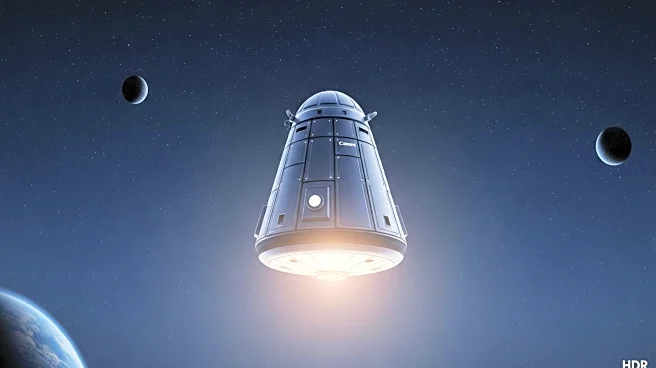What is the story about?
What's Happening?
Blue Origin successfully conducted its 15th space tourism flight, sending six individuals on a brief journey to space. The flight, known as NS-36, took off from Blue Origin's West Texas launch site. Among the passengers were Jeff Elgin, Danna Karagussova, Clint Kelly III, Aaron Newman, and Vitalii Ostrovsky, who dubbed themselves the 'Space Nomads.' A mystery passenger, later revealed as Will Lewis, CEO of Insmed, also joined the flight. The New Shepard vehicle reached over 62 miles above Earth, allowing passengers to experience weightlessness and view Earth from space. The mission lasted 10 minutes and 21 seconds, with the capsule landing safely in the Texas desert.
Why It's Important?
This flight marks another milestone in the growing space tourism industry, showcasing Blue Origin's continued commitment to making space accessible to civilians. The inclusion of high-profile individuals like Will Lewis highlights the appeal of space travel among business leaders and entrepreneurs. As more companies enter the space tourism market, competition is likely to drive innovation and potentially lower costs, making space travel more accessible to a broader audience. This development could have significant implications for the future of commercial space exploration and the economy surrounding it.
What's Next?
Blue Origin is expected to continue its space tourism missions, potentially increasing the frequency of flights as demand grows. The company may also explore partnerships or collaborations to enhance the space tourism experience. As the industry expands, regulatory bodies may need to address safety standards and environmental impacts of increased space travel. Additionally, advancements in technology could lead to longer and more complex missions, further pushing the boundaries of civilian space exploration.
Beyond the Headlines
The ethical implications of space tourism, such as environmental concerns and the exclusivity of access, may become more prominent as the industry grows. The potential for space tourism to inspire future generations and promote interest in STEM fields is significant. Long-term, the normalization of space travel could lead to cultural shifts in how humanity views its place in the universe.















